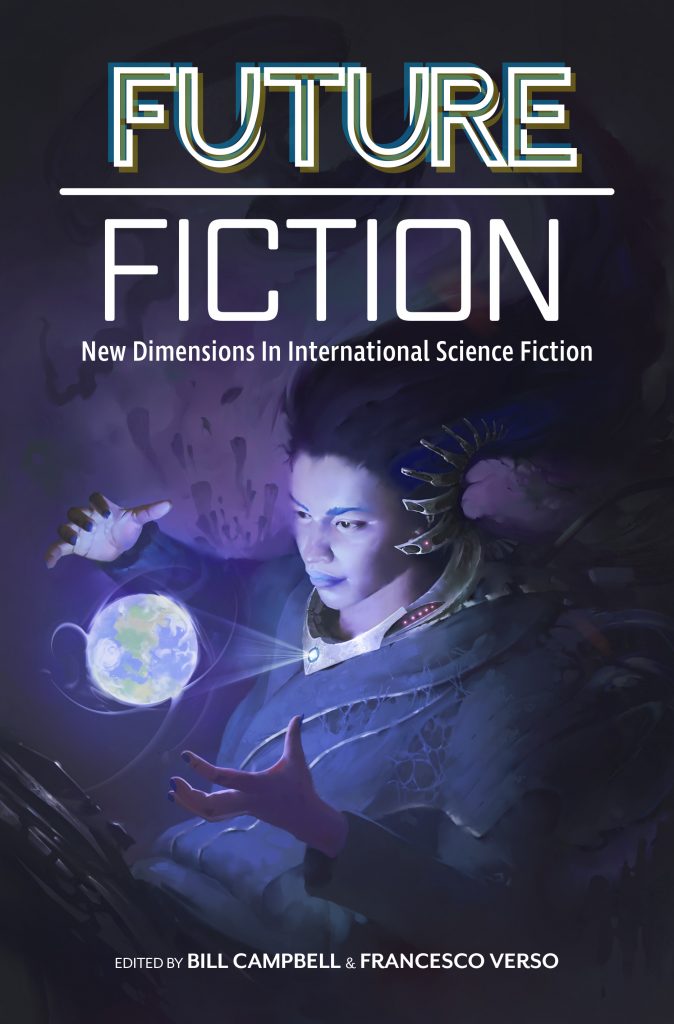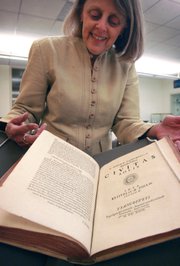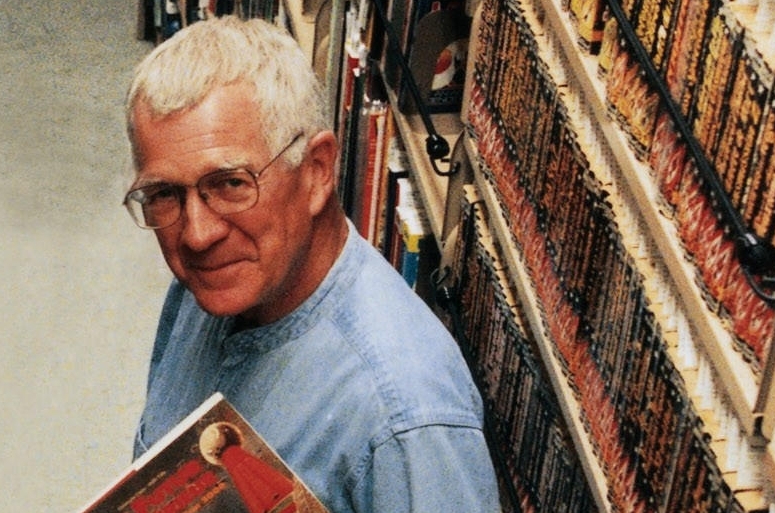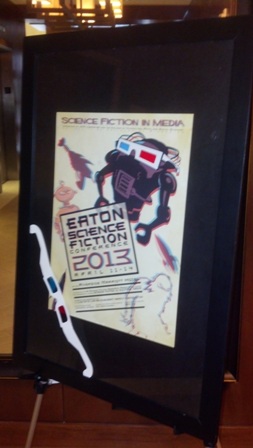(1) WORLD SF. Rosarium Publishing has announced the table of contents for its American edition of Future Fiction: New Dimensions in International Science Fiction, edited by Bill Campbell and Francesco Verso, will be released March 1, 2018.
In its brief existence, Rosarium Publishing has worked hard in “introducing the world to itself” through groundbreaking, award-winning science fiction and comics. In combing the planet to find the best in each field, Rosarium’s own Bill Campbell has found a fellow spirit in Italian publisher, Francesco Verso. Borrowing from the fine tradition of American underground dance labels introducing international labels’ music to the people back home, Rosarium brings to you Future Fiction: New Dimensions in International Science Fiction, a thrilling collection of innovative science fiction previously published by Francesco Verso’s company, Future Fiction. Here you will find thirteen incredible tales from all around the globe that will not only introduce you to worlds you may not be familiar with but also expand your horizons.

Table of Contents
- James Patrick Kelly – Bernardo’s House (USA)
- Michalis Manolios – The Quantum Mommy (Greece) – translated by Manolis Vamvounis
- Efe Tokunbo – Proposition 23 (Nigeria)
- Clelia Farris – Creative Surgery (Italy) – translated by Jennifer Delare
- Xia Jia – Tongtong’s Summer (China) – translated by Ken Liu
- Pepe Rojo – Grey Noise (Mexico) – translated by Andrea Bell
- Liz Williams – Loose Strife (UK)
- Ekaterina Sedia – Citizen Komarova Finds Love (Russia)
- Nina Munteanu – The Way of Water (Canada)
- Tendai Huchu – Hostbods (Zimbabwe)
- Swapna Kishore – What Lies Dormant (India)
- Carlos Hernandez – The International Studbook of the Giant Panda (USA)
(2) ACHIEVEMENT UNLOCKED. The Disabled People Destroy Science Fiction / Uncanny Magazine Year 4 Kickstarter met its goal in three days. The total last time I looked was $23,359 – the target had been $22,000.
(3) NEXT AT KGB. Fantastic Fiction at KGB reading series hosts Ellen Datlow and Matthew Kressel present Gregory Frost & Rajan Khanna on Wednesday, August 16, 7 p.m. at the KGB Bar.
Gregory Frost
Gregory Frost is the author of Shadowbridge, Lord Tophet, Fitcher’s Brides, and The Pure Cold Light and a whole mess of short stories of the fantastic. His collaboration with Michael Swanwick, “Lock Up Your Chickens and Daughters, H’ard and Andy Are Come to Town” won an Asimov’s Readers’ Award for 2015. That worked out so well that he and M. Swanwick are currently engaged in writing another collaboration. Greg is the Fiction Workshop Director at Swarthmore College, and with Jonathan Maberry founded the Philadelphia branch of The Liars Club, a collective of semi-deranged and often inebriated authors. Greg is working on a collaborative series with Jonathan Maberry based upon their novella “Rhymer,” published in the anthology Dark Duets.
Rajan Khanna
Rajan Khanna is an author, blogger, reviewer, and narrator. His post-apocalyptic airship adventure series starting with Falling Sky and Rising Tide concluded in July 2017 with Raining Fire. His short fiction has appeared in Lightspeed Magazine, Beneath Ceaseless Skies, and several anthologies. His articles and reviews have appeared Tor.com and LitReactor.com and his podcast narrations can be heard at Podcastle, Escape Pod, PseudoPod, Beneath Ceaseless Skies, and Lightspeed Magazine. Rajan lives in Brooklyn where he’s a member of the Altered Fluid writing group.
KGB Bar, 85 East 4th Street (just off 2nd Ave, upstairs), New York, NY.
(4) IF YOU CAN MAKE IT THERE. Andrew Porter tells me there are New York authors with historic plaques on their old homes:
There are historic blue plaques on Montague Street, in the building where Norman Mailer lived for a while. Around the corner, there’s a bronze plaque on the building where W.H. Auden lived.
Once I heard that, I decided we should start agitating for historic plaques on the birth homes of historic SF writers.
Andrew Porter suggested Isaac Asimov, Frederik Pohl, Robert Silverberg, and Julius Schwartz. Some others have added:
Avram Davidson, born in Yonkers, 1923
Robert Sheckley, b. 1928 (Brooklyn?)
and Tom Disch died on Union Sq. W. on 4 July 2008
(5) FUN APPROACH. Jared begins his review of The War of Undoing by Alex Perry at Pornkitsch —
This is a long – and often quite meandering – book. There’s a slow start, followed by a lot of quiet, discursive tangents. Several of Undoing’s plots and ‘hints’ don’t coalesce until the very end, and certain momentous occasions and world-changing events – which would be the very heart and soul of other fantasy novels – are downplayed, and shifted to the background. As a result, The War of Undoing can feel frustrating at times. But, and I can’t stress this enough, stick with it: this book simply has different priorities.
The War of Undoing uses a deceptively simple premise and a by-the-numbers fantasy world to great effect. It isn’t a book about what happens, where it happens, or, in some cases, even who it happens to. It is, instead, a book about the why – the choices we make, and what drives us to them.
That’s all worth excerpting – but then, Jared goes into overdrive deconstructing the book’s familiar motifs as if he was scoring the qualities of a role-playing game. That part is really entertaining.
(6) SENDING UP OLD WHO. Fathom Events will show “RiffTrax Live: Doctor Who: The Five Doctors” in theaters August 17 and August 24.

The Doctor is in the house! The RiffTrax house, that is! The stars of Mystery Science Theater 3000®, Mike Nelson, Kevin Murphy and Bill Corbett, are back on the big screen for a legendary riffing of the 1983 Doctor Who film “The Five Doctors.” Someone is taking the Doctor’s past selves out of time and space, placing them in a vast wilderness – a battle arena with a sinister tower at its center. As the various incarnations of the Doctor join forces, they learn they are in the Death Zone on their home world of Gallifrey, fighting Daleks, Cybermen, Yeti and a devious Time Lord Traitor who is using the Doctor and his companions to discover the ancient secrets of Rassilon, the first and most powerful ruler of Gallifrey.
Join Mike, Kevin and Bill as they join the Five Doctors for one of the most thrilling Doctor Who adventures ever!
(7) BUDGET BOOK LAUNCH. Mark-kitteh says, “I’m reading The Prey of Gods by Nicky Drayden — rather fun concept so far, not sure where it’s going but I’m interested to find out — and I went to check out her website. I thought this recent blog post on the finances of her book promotion might suit as a scroll item” — “Book Promotion on a $800 Budget”.
ARC GIVEAWAYS AND EARLY REVIEWS:
Four to six months before your book launches, you want to start getting ARCs (Advance Reader Copies) into as many people’s hands as possible. These early reviewers will help generate buzz for your book and get other readers interested. The easiest way to do this is by holding giveaways on Goodreads. Goodreads is where readers congregate and socialize, so you get a lot of visibility through social shares. Plus, unlike Amazon, people can start leaving reviews and ratings as soon as the book is listed, and not just once launch day has arrived.
Aim to give away at least 30 physical ARCs through random giveaways and targeting bigger name reviewers. If you’re with a big house or small press, they should be offering some giveaways on their own and getting you reviewers, so you’ll just be supplementing as necessary. For these figures, I’m assuming it costs about $7 to ship each book and $8 per book copy beyond free books provided by the publisher. I’m also assuming if you’re with a big house, you’ll get at least 20 free copies of your book, 10 for small press, and 0 for indie authors.
I’d recommend doing three big pushes prior to launch, and two small giveaways (1-2 books each) in the months after launch. Goodreads users can mark your book as to-be-read when they enter the contest, which will make them much more likely to purchase your book. With each giveaway you should see more and more interest. Below you can see how much “to-read” numbers jump when there’s a giveaway. The smaller spikes are the start of the giveaways….
(8) JULIE GOMOLL OBIT. Julie Gomoll (1962-2017), sister of Jeanne, died this past weekend. Jeanne’s eulogy on Facebook is now set to public.
Jackie Dana wrote this deeply touching reminiscence of Julie: “Our Chief Schemer Has Left Us”.
That was the last time I got to see you, and now I’m just reeling. How is it that you’re not going to be around anymore? No more Julie snark on Facebook, no photos of Mr. Pants sitting inappropriately, no more brainstorming. I just can’t bear it.
I sit here trying to make sense of it all, and I know you’re probably just rolling your eyes, wanting to tell me to go do something else. But it’s you, Julie, and I can’t. I knew about your personal struggles, and I knew you were trying to reinvent yourself professionally (like all of the best entrepreneurs do). But even though things were tough sometimes, you were a fighter. A bad ass. So I just can’t understand.
One thing’s for sure. I’m not alone. There’s a not-so-small army of friends and family who you inspired, and we’re all struggling to understand. We miss you so much already. You didn’t leave a hole behind when you left us—you left a chasm as wide as the Grand Canyon.
A fundraiser for Austin Pets Alive! has been started in her honor.
Please join me in honoring the memory of Julie Gomoll, a true digital pioneer.
Julie founded Go Media in 1987. It became one of the first major digital agencies in Texas. The web just seemed to run in her veins. Even when companies asked Julie to create mailers, she’d build them a website. One day, I was fortunate enough to see Julie’s portfolio. One page after another, I saw another piece of Austin digital history. Dell. Whole Foods. The City of Austin. Julie helped pin these organizations on the digital map. With the switch of a DNS server, her company connected them to the entire world.
Julie took the money she made on the sale of Go Media to Excite, and invested in a coworking space named Launchpad. This wasn’t 2015?—?this was 2007. She was a coworking goddess when other people were sweating their 9–5. Launchpad was an unfortunate casualty of the 2008 recession. The coworking movement, however, was not. Dozens of other Austin coworking formal and informal spaces emerged thanks to early adopters like Julie. There are hundreds of small companies that emerged as a result…
Julie loved dogs. Like, pretty much any dog. She even built the first website for Austin Pets Alive!, which has saved thousands of them. Thanks, Julie. We’d like to help you save thousands more. Please help honor Julie’s memory by donating to Austin Pets Alive! in her name.
And Julie Gomoll’s professional website has more about that side of her story.
(9) ZIMMERMAN OBIT. Bookstore owner Lorraine Zimmerman died July 12 reports The Indy. Along with her husband Norman, she owned the Fahrenheit 451 bookstore in Laguna Beach, CA from 1976 until it closed in 1988. It wasn’t a specialty store, however, they did sell everything Bradbury had in print. I bought Bradbury’s book of Irish stories there in the Eighties.
Lorraine Zimmerman, owner of legendary Fahrenheit 451 Books in Laguna Beach (1978-1988), of Collected Thoughts Bookshop in Berkeley (1996-2004), and partner at Berkeley’s University Press Books (2004-2017), passed away on July 12. She was 76 and is survived by her two brothers, three children and seven grandchildren.
Born and raised in Chicago, Lorraine entered the University of Wisconsin, Madison, in 1957. Pausing from university studies after marrying and starting a family, Zimmerman relocated to Orange, Calif., with family in 1970. She resumed her studies at UC Irvine, earning a Bachelor of Arts degree in social ecology. A lover of books and ideas, Zimmerman bought Laguna Beach’s Fahrenheit 451 Books in 1976.
The bookstore soon received national recognition. In 1981, Lorraine was one of five booksellers interviewed in The New York Times for an article on independent bookstores. In 1987, the Los Angeles Times described Fahrenheit 451 Books as “one of the most distinctive independent bookstores in Southern California,” and “Laguna Beach’s literary landmark.” Zimmerman inspired Laguna residents with her own literary flare, publishing Fahrenheit Flasher, a newsletter with colorful images, stories about upcoming author signings and her reviews of forthcoming books. Zimmerman’s innovative promotional strategies included a children’s reading program that enrolled 40 families at its height, and a 12-book plan whereby customers received credit for the average price of their purchases.
Zimmerman made headlines by hosting book signings with such renowned authors as Ray Bradbury, Lawrence Ferlinghetti, Allen Ginsberg, June Jordan, P.D. James, and Michael Chabon. Upon selling Fahrenheit 451 Books, Zimmerman reflected on her experience in American Bookseller magazine, writing in May 1989: “Discussing books with customers and local writers; sponsoring literary events; having a finger on the pulse of current American thought through the knowledge of forthcoming books and my customers’ requests; having the ability to disseminate hard-to-find information–these were the daily rewards of bookselling.”
(10) TODAY IN HISTORY
- July 28, 1957 — The Cyclops premieres.
- July 28, 1995 – Waterworld debuted in theaters.
(11) COMIC SECTION. John King Tarpinian recommends today’s Moderately Confused.
(12) CLARKE WINNER. Colson Whitehead said in his Arthur C. Clarke Award acceptance remarks, “Way back when I was 10 years old, it was science fiction and fantasy that made me want to be a writer. If you were a writer, you could work from home, you didn’t have to talk to anybody, and you could just make up stuff all day. Stuff about robots and maybe zombies and maybe even miraculous railway lines. Fantasy, like realism, is a tool for describing the world, and I’m grateful that a book like The Underground Railroad, which could not exist without the toolkit of fantastic literature, is being recognized with the Arthur C. Clarke award.”
(13) ELLISON BIO. Daniel M. Kimmel gives a glowing review to his friend Nate Segaloff’s A Lit Fuse, The Provocative Life of Harlan Ellison.
What makes this so special? It is a full-bodied portrait of Ellison the writer as well as the ups and downs of his personal life. It doesn’t turn away from the touchy subjects (“The City on the Edge of Forever,” the Connie Willis controversy, the never published Last Dangerous Visions), but it also celebrates not only his successes, but the way he has inspired the writers who followed him, created works of lasting value, and demonstrates that while he is, indeed, one of the giants of science fiction, he is also a writer of mysteries, of criticism, of essays, and of one of the most interesting lives in modern American letters. Even If you are not a devoted Ellison fan, it is a fascinating story, and you may find yourself eager to fill in the gaps in your own reading of Ellison.
(14) SUMMERTIME AND THE READING IS EASY. The Washington Post’s Michael Dirda presents “A summer book list like no other”.
To everything there is a season, and the season for short stories is summer — except for tales of ghosts and demons, which should be reserved for late fall. To help you enjoy your time on a beach or in a hammock, here are seven short-story collections worth looking for.
Other Arms Reach Out to Me: Georgia Stories , by Michael Bishop (Fairwood Press). Michael Bishop is well known as a science fiction writer — don’t miss his best-of collection, “The Door-Gunner and Other Perilous Flights of Fancy” — but this new book collects his equally fine stories about contemporary Southern life. How can anyone resist “The Road Leads Back,” which pays homage to Flannery O’Connor? From the opening sentence, its tone is pitch-perfect: “Flora Marie did not want to visit the Benedictine monastery in Alabama. Back in April, at the insistence of her aunt Claire, who had paid for the pilgrimage, she’d made a fatiguing round-trip journey by air to Lourdes. Aunt Claire had believed that a reverent dip in the shrine’s waters would enable Flora Marie to throw away her crutches and live again as a ‘normal person.’ ” Other stories recall the trailer-park black humor of Harry Crews or Barry Hannah: In “Doggedly Wooing Madonna,” a misfit teenager repeatedly writes letters proposing to the Material Girl, who eventually pays him a visit while he is working at Finger Lickin’ Fried. Bishop closes his excellent collection with the Nebula Award-nominated “Rattlesnakes and Men.” …
(15) YOU’RE INVITED. There will be a “Chinese Fandom Fan Party” at Worldcon 75. The public is invited. (Here is the Facebook event link.)
Hosted by The Shimmer Program, Storycom and Science Fiction World Publishing House
Thursday, August 10 at 9 PM – 11 PM UTC+08 Room 103, Messukeskus, Helsinki, Finland
You have to be a Worldcon 75 member to attend the parties. Our party welcome all guests and feel free to share it with your friends who are coming to Worldcon this year! The more the merrier! Highlights:
- Meet Chinese sf authors, Xia Jia, Zhang Ran, A Que, Luo Longxiang, Tan Gang, Nian Yu and more…
- Meet Chinese editors in Science Fiction World to discuss how to publish your works in China
- Meet Chinese fans who won Storycom’s Worldcon 75 Attending Funding…
- Introduction of Chengdu City – “SF capital of China”
- Welcome to The Fourth China (Chengdu) International SF Conference
- Learn about various ways of attending cons in China for free
- Free snacks and drinks
- Chinese specialties and Chinese tea
(16) KEEPING UP WITH JEOPARDY! Steven H Silver sent me this information from the future about a genre reference on today’s episode of Jeopardy!
In Double Jeopardy, categories were:
Plan
9
From Outer Space
Other Odd Films
(17) SLUSSER CONFERENCE. Organizers have put out a call for papers for The George Slusser Conference on Science Fiction and Fantasy to be held at UC Irvine on April 26-29, 2018.
Coordinators: Jonathan Alexander (University of California, Irvine)
Gregory Benford (University of California, Irvine)
Howard V. Hendrix (California State University, Fresno)
Gary Westfahl (University of La Verne)
Although the late George Slusser (1939–2014) was best known for coordinating academic conferences on science fiction and editing volumes of essays on science fiction, he was also a prolific scholar in his own right, publishing several books about major science fiction writers and numerous articles in scholarly journals and anthologies. His vast body of work touched upon virtually all aspects of science fiction and fantasy. In articles like “The Origins of Science Fiction” (2005), he explored how the conditions necessary for the emergence of science fiction first materialized in France and later in England and elsewhere. Seeking early texts that influenced and illuminate science fiction, he focused not only on major writers like Mary Shelley, Jules Verne, and H. G. Wells but also on usually overlooked figures like E. T. A. Hoffmann, Benjamin Constant, Thomas De Quincey, Honoré de Balzac, Guy de Maupassant, J.-H. Rosny aîné, and J. D. Bernal. His examinations of twentieth-century science fiction regularly established connections between a wide range of international authors, as suggested by the title of his 1989 essay “Structures of Apprehension: Lem, Heinlein, and the Strugatskys,” and he fruitfully scrutinized both classic novels by writers like Arthur C. Clarke and Ursula K. Le Guin and the formulaic ephemera of the contemporary science fiction marketplace. A few specific topics repeatedly drew his interest, such as the mechanisms of time travel in science fiction and the “Frankenstein barrier” that writers encounter when they face the seemingly impossible task of describing beings that are more advanced than humanity. And he aroused controversies by criticizing other scholars in provocative essays like “Who’s Afraid of Science Fiction?” (1988) and “The Politically Correct Book of Science Fiction” (1994). No single paragraph can possibly summarize the full extent of his remarkably adventurous scholarship.
The George Slusser Conference on Science Fiction and Fantasy seeks to pay tribute to his remarkable career by inviting science fiction scholars, commentators, and writers to contribute papers that employ, and build upon, some of his many groundbreaking ideas; we also welcome suggestions for panels that would address Slusser and his legacy. To assist potential participants in locating and studying Slusser’s works, a conference website will include a comprehensive bibliography of his books, essays, reviews, and introductions. This selective conference will follow the format that Slusser preferred, a single track that allows all attendees to listen to every paper and participate in lively discussions about them. It is hoped that the best conference papers can be assembled in one volume and published as a formal or informal festschrift to George Slusser.
Potential contributors are asked to submit by email a 250-word paper abstract and a brief curriculum vitae to any of the four conference coordinators: Jon Alexander ([email protected]), Gregory Benford ([email protected] ), Howard V. Hendrix ([email protected]), or Gary Westfahl ([email protected] ). The deadline for submissions is December 31, 2017, and decisions will be provided by mid-January, 2018. Further information about the conference schedule, fee, location, accommodations, and distinguished guests will be provided at the conference website.
(18) AT HOME WITH RAY’S HUGOS. Jonathan Eller writes about this photo —

Ray Bradbury’s two most recent Retro Hugo Awards, “Best Fan Writer, 1941” and “Best Fanzine, Futuria Fantasia, 1941,” have been in the Center for Ray Bradbury Studies since Center director Jon Eller accepted them on behalf of the Bradbury family at the 2016 World Science Fiction Convention in Kansas City (August, 2016). The Bradbury family graciously agreed to have the Bradbury Center curate these Hugo Awards through a long-term loan agreement completed earlier this year. Here you see both awards in the Bradbury center, guarded by a Martian modeled on one of the 1970s stage productions of The Martian Chronicles. The Bradbury Center, as well as the Indiana University School of Liberal Arts and IUPIU, are deeply indebted to the Bradbury family for this curatorial loan. — Jon Eller
[Thanks to Steven H Silver, Matthew Kressel, Howard Hendrix, Andrew, JJ, Cat Eldridge, Andrew Porter, Mark-kitteh, and John King Tarpinian for some of these stories. Title credit belongs to File 770 contributing editor of the day ULTRAGOTHA.]









